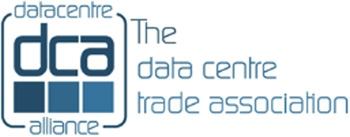DCA Membership Code of Conduct
Code of Conduct
1. Introduction
This Code sets out the professional standards required by The Data Centre Alliance as a condition of membership. It applies to members of all grades and also non-members who offer their expertise.
Within this document, the term "relevant authority" is used to identify the person or organisation which has authority over an individual member.
Upon the submission and acceptance of your DCA membership application request all relevant authorities including all employees of the relevant authority are bound by the DCA Members Code of conduct as laid out in this document. Upon the submission and acceptance of your DCA membership application request all relevant authorities are also bound by the DCA Terms and Conditions of Membership a copy of which can be found via the following link www.dca-global.org/membership-terms amendments to which are subject to change as outlined in clause 5.6 It is incumbent of the said relevant authority submitting the DCA membership application request to ensure that an internal process exists whereby the terms of membership are filed as legally binding contractual terms.
The Code governs your personal conduct as an individual member of the DCA and not the nature of business or ethics of the relevant authority. It will, therefore, be a matter of your exercising your personal judgement in meeting the Code's requirements.
2. The Public Interest
2.1. In your professional role you shall have regard for the public health, safety and environment.
2.2. This is a general responsibility, which may be governed by legislation, convention or protocol.
2.3. If in doubt over the appropriate course of action to take in particular circumstances, you should seek the counsel of a peer or colleague.
2.4. You shall have regard to the legitimate rights of third parties.
2.5. The term 'Third Party' includes professional colleagues, or possibly competitors, or members of 'the public' who might be affected.
2.6. You shall ensure that within your professional field/s you have knowledge and understanding of relevant legislation, regulations and standards, and that you comply with such requirements.
2.7. As examples, relevant legislation could, in the UK, include the Public Interest Disclosure Act, Disability Discrimination Act, Data Protection or Privacy legislation, Computer Misuse law, legislation concerned with the export or import of technology, possibly for national security reasons, or law relating to intellectual property. This list is not exhaustive, and you should ensure that you are aware of any legislation relevant to your professional responsibilities.
2.8. In the international context, you should be aware of, and understand, the requirements of law specific to the jurisdiction within which you are working, and, where relevant, to supranational legislation such as EU law and regulation. You should seek specialist advice when necessary.
2.9. You shall conduct your professional activities without discrimination against clients or colleagues
2.10. Grounds of discrimination include, but are not limited to race, colour, ethnic origin, gender, sexual orientation, age and disability
2.11. All colleagues have a right to be treated with dignity and respect
2.12. You shall reject and shall not make any offer of bribery or inducement.
3. Duty to Relevant Authority
3.1. You shall carry out work or study with due care and diligence in accordance with the relevant authority's requirements, and the interests of the DCA. If your professional judgement is overruled, you shall indicate the likely risks and consequences.
3.2. The crux of the issue here, familiar to all professionals in whatever field, is the potential conflict between full and committed compliance with the relevant authority's wishes, and the independent and considered exercise of your judgement.
3.3. If your judgement is overruled, you are encouraged to seek advice and guidance from a peer or colleague on how best to respond.
3.4. You shall avoid any situation that may give rise to a conflict of interest between you and your relevant authority. You shall make full and immediate disclosure to them if any conflict is likely to occur or be seen by a third party as likely to occur. You shall endeavour to complete work undertaken on time to budget and shall advise the relevant authority as soon as practicable if any overrun is foreseen.
3.5. You shall not disclose or authorise to be disclosed, or use for personal gain or to benefit a third party, confidential information except with the permission of your relevant authority, or at the direction of a court of law.
3.6. You shall not misrepresent or withhold information on the performance of products, systems or services, or take advantage of the lack of relevant knowledge or inexperience of others.
4. Duty to the Profession
4.1. You shall uphold the reputation and good standing of the DCA in particular, and the data centre industry in general, and shall seek to improve professional standards through participation in their development, use and enforcement.
4.2. As a Member of the DCA you also have a wider responsibility to promote public understanding of data centres - their benefits and pitfalls - and, whenever practical, to counter misinformation that brings or could bring the industry into disrepute.
4.3. You should encourage and support fellow members in their professional development and, where possible, provide opportunities for the professional development of new members, particularly student members. Enlightened mutual assistance between professionals furthers the reputation of the profession, and assists individual members.
4.4. You shall act with integrity in your relationships with all members of the DCA and with members of other professions with whom you work in a professional capacity.
4.5. You shall have due regard for the possible consequences of your statements on others.
4.6. You shall not make any public statement in your professional capacity unless you are properly qualified and, where appropriate, authorised to do so. You shall not purport to represent the DCA unless authorised to do so.
4.7. The offering of an opinion in public, holding oneself out to be an expert in the subject in question, is a major personal responsibility and should not be undertaken lightly.
4.8. As a DCA member you may be invited to comment or supply feedback on standards documents. These documents are provided by the DCA in order to solicit expert comment and review from the across DCA Membership. The DCA requires this information is treated as draft, private and strictly not for public domain or re-distribution. Any view expressed by a DCA member should be submitted via the channel the DCA provides and should not be sent directly to the standards body, committee or agency concerned. Failure to adhere to this protocol may result in suspension of DCA membership. Please note the channel provided for collection of views and comments may follow the posting of documents, and therefore may not be immediately available.
4.9. To give an opinion that subsequently proves ill-founded is a disservice to the profession, and to the DCA.
4.10. You shall notify the Association if convicted of a criminal offence or upon becoming bankrupt or disqualified as Company Director.
4.11. This does not apply, in the UK, to convictions spent under the Rehabilitation of Offenders Act 1974, to discharge bankruptcy, or to expire disqualification under the Company Directors Disqualification Act 1986.
4.12. Not all convictions are seen as relevant to membership and each case will be considered individually.
5. Professional Competence and Integrity
5.1. You shall seek to upgrade your professional knowledge and skill, and shall maintain awareness of technological developments, procedures and standards which are relevant to your field, and encourage your subordinates to do likewise.
5.2. You shall not claim any level of competence that you do not possess. You shall only offer to do work or provide a service that is within your professional competence.
5.3. You can self-assess your professional competence for undertaking a particular job or role by asking, for example,
i) am I familiar with the technology involved, or have I worked with similar technology before?
ii) have I successfully completed similar assignments or roles in the past?
iii) can I demonstrate adequate knowledge of the specific business application and requirements successfully to undertake the work?
5.4. In addition to this Code of Conduct, you shall observe whatever clauses you regard as relevant from any other relevant standards, and you shall encourage your colleagues to do likewise.
5.5. You shall accept professional responsibility for your work and for the work of colleagues who are defined in a given context as working under your supervision. Data Centre Alliance reserves the right to terminate any membership at any time without compensation or refund.
5.6. Terms and conditions of Membership, may be revised from time to time and will be notified to Members in writing or notified to all members via electronic means through the member's portal.
6. Rules of Participation and Leadership of DCA: Advisory Board
6.1 DCA Advisory Board: The Purpose of the DCA Advisory Board is to identify the optimum agenda that best serves the DCA membership and the data centre industry. This includes providing strategic policy guidance and setting the objectives of the DCA and advising the DCA staff on action plans for delivering these aims and objectives.
6.2 From time to time, members of the DCA Advisory Board will be asked to volunteer to represent the DCA at functions, seminars and conferences. Although there is no obligation and it is accepted that there are no guarantees of availability it is also expected that from time to time individuals will be asked to volunteer tasks that benefit the industry and to promote and represent the DCA's best interests to contacts, colleagues, the public, the commercial world and/or the public sector.
6.2 The term of service for Advisory Board members is 3 years. A member may step down should personal or professional circumstances change, or is obliged to do so if his or her DCA membership lapses. Individuals may re-nominate themselves to stand for a further term if they so wish
6.3 The DCA Advisory Board is elected by the members of the DCA (excluding free "registered" users)
6.4 The organisation of the Advisory Board specific responsibility tasks are democratically approved by the board members at bi-annual Board of Governors meetings or at extraordinary meetings as called by the board.
6.5 Advisory Board nominations and eligibility - Applications can be made at any time from C level or senior management level individuals who continue to remain supporting DCA Corporate Partners.
6.6 Nominations should be submitted with a CV that demonstrates expertise, experience and a data centre industry track record.
6.7 The meeting frequency will be Bi-Annual led by Chairman or Vice Chairman - Admin/Secretarial support by DCA staff - meeting time approx 90-120 minutes as required.
7. Rules of Participation and Leadership of DCA: Steering Committees
7.1 DCA Steering Committees: The modern data centre features a complex and diverse coming together of specialisations of traditional industry disciplines under one critical facility roof. Therefore the purpose of the DCA Technical Council is to capture this wide ranging expertise into a collaborative platform in order to assist with standards development, R&D, best practice, innovation and enabling the next generation to meet the future growth and demands of the industry.
7.2 DCA members are free to request to join the group(s) that relate to their particular interest.
7.3 Each DCA Steering Group is led by a DCA Steering Committee chair who serves a rolling one year term and is elected by the group members. Nominations can be processed annually. If no nominations are received, the existing DCA Steering Committee chair may continue, for a further year or the DCA can nominate an interim chair. Only full members can
7.4 The Steering Committee Chair is encouraged to chair meetings as required with DCA members of the Technical Steering Group he/she is leading to accomplish the following outputs:
• Development of best practice guidance reports and published market analysis documentation
• Any recommended proposal or change for review by the Certification Requirements Steering Group (if relevant)Any recommendation or contribution to standards development
• Any public statement or update
• Any recommendation or contribution to training, skills or education
• Any recommendation or contribution to standards development
• Any liaison or collaboration recommendations either within DCA or with other stakeholder groups
• A decision on whether to re-constitute the group for another 12 months
7.5 The output from the meeting/workshop should be collated by the Steering Committee chairperson and PDFs minutes and uploaded to the SIG page via www.dca-global.org members portal. Any minutes should also be disseminated to group members via email and or the wider industry or DCA staff as required.
7.6 The Steering Committee chair is entitled to hold administrative rights to a collaboration "group" this enables:
• Ability to create of WYSIWYG style web pages visible to group members and change the homepage layout and content
• Ability to create libraries, file stores and upload content for group only, member only or public access
• Ability to bulk email all group members under GDPR regulations
• Ability to send out group invites via outlook to all members of the group, forum and blogs
• Ability to remove members of the group, invite new members to the group if they work for any existing DCA member with full Corporate Partner Status. If the Chair or group wishes to invite non members into the group this will only be possible with group approval. Non members can be then added to the Group as a "Guest" * Guest status needs to be also approved by the DCA and can only be set up by a member of the DCA admin team. Guest Status is designed to allow individual experts to participate in a group and to assist with group activities (please note, although a guest can contribute to a Group they are not afforded voting rights, or document access or meeting access rights unless it is pre-approved collectively by the group.
7.7 The DCA Steering Committee chair may request that other members of the group be granted Group Administrator rights by contacting DCA staff.
7.8 The Chair of the committee can send requests to DCA staff for any assistance in co-ordinating meetings, making changes to online content, adding/removing members etc.
7.9 The DCA has access to meeting room & office facilities within the universities and institutions, the committee chair may request these facilities for steering committee activities (subject to availability), by contacting DCA staff.
8. DCA Accreditation Board
8.1 The main function of the DCA Accreditation Board is to provide management governance to the DCA Certifications Scheme and approval services under the DCA Certification Scheme. The board comprises of individuals who are free of any, whether real or perceived, conflicts of interest with data centre industry vendors, owners, auditors and/or operators.
8.2 Members of the DCA Accreditation Board must sign a "declaration of Interests" to be kept on file by DCA staff. It is the responsibility of the member to advise the DCA in writing of any changes that may affect either their ability (or a public perception of) to carry out their DCA Accreditation Board role independently and free of conflict of interest.
8.3 Accreditation board members are authorised to recommend and vote on awards of DCA certifications of data centre facilities and also the DCA approval of auditors who wish to participate under the scheme. Accreditation board members are requested to volunteer to assist with development work of the DCA Certifications free-of-charge. However Accreditation Board members may be eligible for payment by the DCA for Certification work against valid purchase orders received by the DCA in accordance with the rules of the scheme.
8.4 Missing?
8.5 Individuals who wish to join the board must be nominated by DCA staff and approved by the DCA Board of Governors or their nominated representatives.
8.6 Members may apply to become Accreditation Board members by sending an email with an accompanying CV to info@dca-global.org
8.7 The Accreditation Board may make representations to the DCA Advisory Board or any other DCA Committees by contacting DCA Staff.
8.8 The term of office of DCA Accreditation Board members along with details of the contractual relationship are detailed within the rules of the DCA Certification Scheme.
DCA/COC001 V2.5 2014
Upcoming Events
- MAR012025
DCA 2025 Data Centre Event Calendar
By Steve HoneThis is a helpful guide to all the Data Centre focused events, which we are aware off, throughout 2025 so you can pencil them in the diary. - APR232025
DCA 10x10 Data Centre Updates Briefing & Networking Event
By Steve HoneDCA 10X10 DATA CENTRE UPDATE & NETWORKING EVENT NEXT EVENT: Wednesday 23rd April 2025 Location: St Pauls Cathedral, London, - The Wren Suite, North West Entrance. The 10X10 Update and Networking Events provide senior data... - MAY152025
Communico Networking
By Steve HoneCommunico Networking – the industry collaboration point for Data Centre, Cloud and Telecoms. - JUL302025
DCA 10x10 Data Centre Updates Briefing & Networking Event
By Steve HoneDCA 10X10 DATA CENTRE UPDATE & NETWORKING EVENT NEXT EVENT: Wednesday 30 July 2025 The Wren Suite, North West Entrance, St Pauls Cathedral, London. The 10X10 Update and Networking Events provide senior data centre and infrastructure... - SEP112025
Communico Networking
By Steve HoneCommunico Networking – the industry collaboration point for Data Centre, Cloud and Telecoms.


